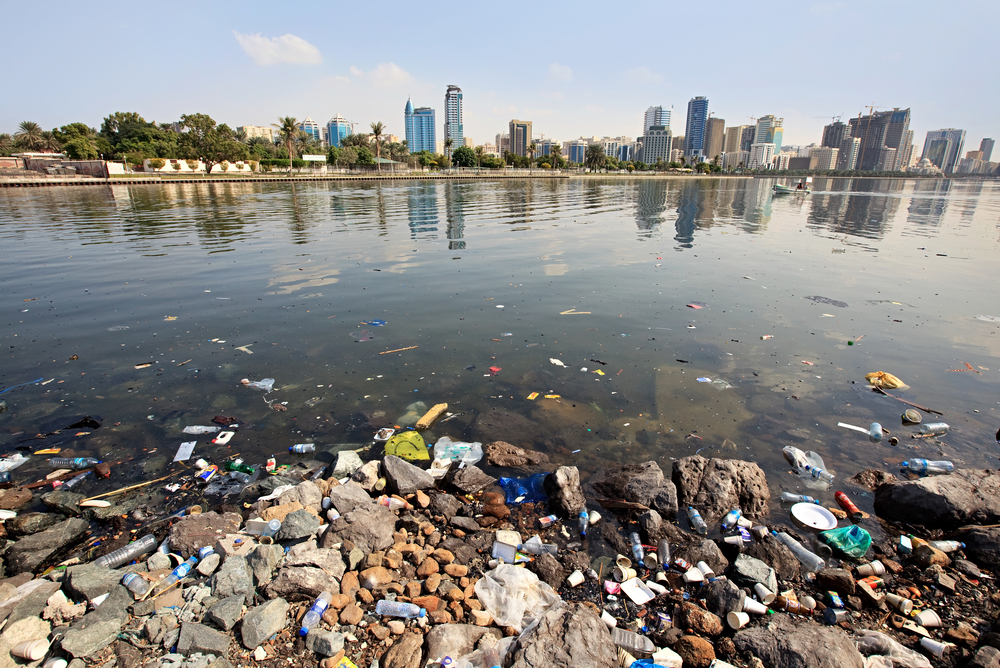Why Trivial Contributions to the Climate Crisis Still Count

Countries resistant to meaningful climate action often point to the relatively small size of their contributions to global carbon emissions. It is this very point which conservative Australian broadcaster Alan Jones sought to convey with his infamous grain-of-rice demonstration. The argument against Australia taking climate action, it seems, goes something like this: Even if anthropogenic climate change is a concern, and even if Australia is adding to this problem, their contribution (about 1%) is trivial compared to the exceedingly large contributions of other nations (such as China and the U.S. with 28% and 15% of global emissions respectively). Given this, it is these emissions heavyweights that should bear most — if not all — of the responsibility for taking climate action. Call this the Trivial Contribution Argument.
But is this a good argument? For starters, let’s ignore the fact that — despite their relatively small total emissions — Australia has the third worst per capita emissions rate in the world. Let’s also ignore the fact that when emissions from coal exports are taken into account, Australia’s total contribution to global carbon emissions is closer to 3-4%. Assuming that Australia is responsible for only 1% of global carbon emissions, does this excuse them from taking meaningful climate action?
In order to answer this question, it’s necessary to dig a little deeper into how the Trivial Contribution Argument works. One underlying assumption seems to be that a trivial contribution, when remedied, will only ever provide a trivial solution — one that is unlikely to solve the problem in question. Suppose, to borrow a vivid illustration provided by one philosopher, I am currently pouring a jug of water into a flooding river. Suppose, further, that the river is about to breach its banks downstream and cause devastation to a nearby town. Am I under some kind of obligation to curb my behavior? My contribution to the flood is trivial, and — for this same reason — any remedy to my actions will only provide a trivial solution. Sure, I can refrain from pouring the jug into the river — but this won’t prevent the flood. Given this, there seems to be no compelling reason for me to modify my behavior; it makes no difference either way.
This, it seems, is the fundamental reasoning behind a country pointing to its trivial carbon emissions as a way of avoiding their obligation to engage in meaningful climate action. Unless larger polluters (like China and the U.S.) do more, there is little to be gained from the remedial actions of smaller emitters. Given that climate action always comes at a cost — both economically and otherwise — why would countries decide to bear this burden when it won’t solve the problem?
Such reasoning, however, is deeply flawed. Consider another example to show why this is the case. Suppose that official waste disposal is expensive in my neighborhood, and that — instead of paying for this service — my neighbors begin dumping their garbage on my front lawn. The damage to my garden (and property value) is predictably severe. I eventually catch one of my neighbors tossing a burger wrapper on to my property and confront him about his behavior. He shrugs his shoulders and says that he isn’t the culprit I need to worry about. He surveys the accumulated rubbish pile and estimates that he’s responsible for less than 1% of the waste. He identifies two of my neighbors as littering heavyweights, claiming that they, together, are responsible for more than 40% of the waste. He explains that curbing his own behavior won’t do much to help until I convince those neighbors to do something about their own behavior. With that, he shrugs his shoulders, flings a banana peel onto the heap, and departs.
In this context, the unreasonableness of my neighbor’s defense is plain to see. Yes, there are those who are more responsible for the problem. But he is still responsible for at least some of the problem, and thus responsible for at least some of the solution. While ending — or at least reducing the extent of — his littering will not remedy the issue entirely, this does not excuse his complete inaction.
In fact, the Trivial Contribution Argument isn’t merely flawed — it’s actually paradoxical. Suppose we accept that a 1% contribution is small enough to excuse a country like Australia from any obligations regarding climate action. What percentage, then, would require them to act? Those emitting 2% will point to those emitting 5%, and those emitting that amount will shift the blame on to those emitting even more. Inevitably, the buck will be passed upwards until only the largest emitter is held responsible. But herein lies the paradox: While China is the world’s largest carbon emitter, they are still responsible for ‘only’ 28% of total global emissions. Thus, any remedial action taken by China would be limited to solving no more than a quarter of the problem. Indeed, China could shirk their own responsibilities by saying “even if we do all we can, it won’t be enough, as the remaining countries (combined) are doing far more damage than we are.” In this way, the rationale behind the Trivial Contribution Argument would allow China to shift blame back on to the smaller emitters — leading us full circle, with no responsibility attributed.
The only way to avoid this is to deny the validity of the Trivial Contribution Argument; that is, to deny the claim that a trivial contribution to a problem should be treated like no contribution at all. This is why — when considering the demands of climate justice as they relate to climate action — philosophers tend to take a more pluralistic approach. While the extent to which an actor has contributed to a problem (often called the Polluter Pays Principle) is relevant, we also take into account other principles — such as the extent to which an actor has benefited from the problematic behavior (the Beneficiary Pays Principle) and the actor’s capacity to provide a solution (the Ability to Pay Principle). This more nuanced approach is vital if we wish to engage in real and effective climate action on a global level.




